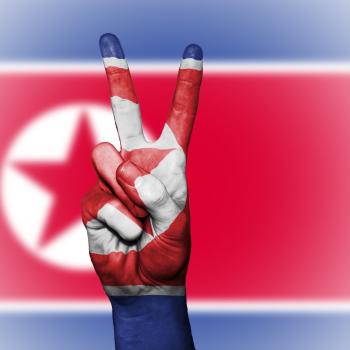A few years ago, I was in a master’s program for creative nonfiction writing. I’d worked as a writer my whole adult life, but this was something new. Going through classes with people who saw the world differently—and described it in lyrical prose—filled me with nerves when I drove the 1,000 miles to campus for a two-week residency.
For my thesis, I was writing about my relationship with my husband Bob. It’s a second marriage for both of us, and the relationship began in the lightest and most unexpected of ways—at a barn dance, a place I’d never been and never expected to go. Within a week we were a couple, despite my best efforts to sabotage it. But less than three months later, it went from serious to committed when I was present at the death of Bob’s son Brian.
Just 23 years old, Brian died without anyone being able to say why. He’d had flu-like symptoms, was admitted to the hospital unconscious, went into a coma and never recovered. The doctors ruled out everything from meningitis to rabies. When he died, there was nothing to do but grieve and wonder why.
So when I was in that residency class, I decided to write about Brian’s passing—specifically one moment after his death when a chaplain unthinkingly did something so egregious that it will be burned into my mind for the rest of my life.
I wrote the essay—barely 500 words, and when the faculty member called on me, I started to read it out loud to the class. I read only a few lines, then stopped as tears and anger welled up in me over what I’d written, over the chaplain’s clumsiness. This took me by complete surprise. The anger hadn’t surfaced while I was writing, but reading it out loud gave it the voice it apparently needed.
I was not one to cry in front of others, let alone as a professional writer in the company of peers. The class was quiet. I started again and was able to read only another paragraph before I had to stop and control my trembling.
For the next few minutes, I tried to hold onto my voice and composure. Finally, I finished, aware that the entire class was uncertain what to do next. How do you respond in the face of such unexpected and raw emotion?
But the instructor, Diana, a wise woman who understood that writing is more than an intellectual pursuit, was not uncertain. She had a Tibetan singing bowl sitting on her desk, and in the quiet hush after I stopped reading, she struck the bowl once and let it resonate throughout the class.
“That’s for Brian,” she said.
Everyone in the room took a breath and relaxed. Her simple act and three small words gave everyone, including me, permission to breathe again and to feel the sacredness of the moment without embarrassment or shame at its intimacy.
I’ll always remember it as one of the most stunning acts of kindness in my life. It was so simple, so spontaneous, so perfect. I bear this in mind when my ego tries to plan the right response to a loss or a slight, getting lost in the form rather than the meaning behind it.
Diana’s gesture reminds me how little we need do to heal one another: Simply be present and respond from the heart.













